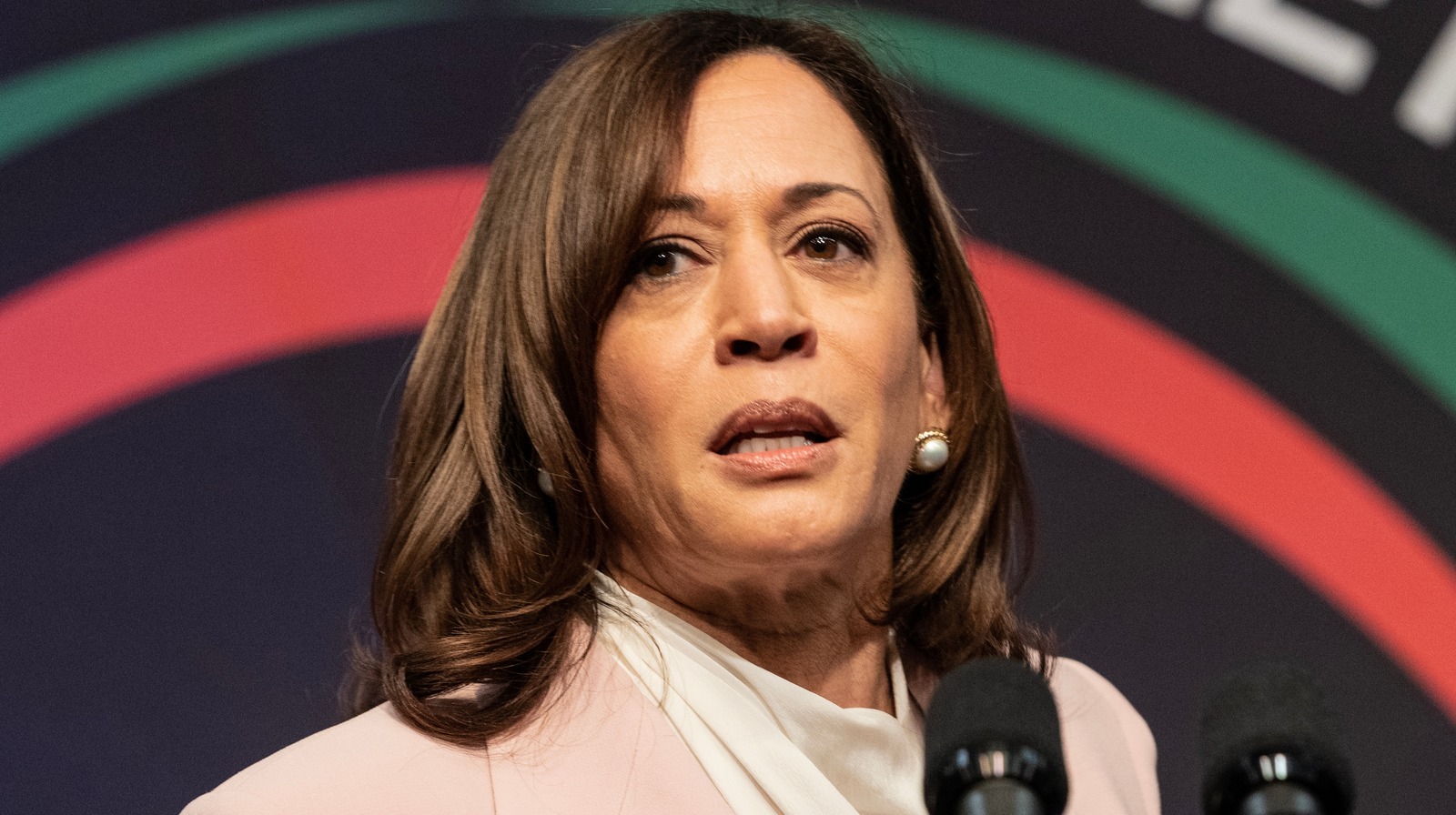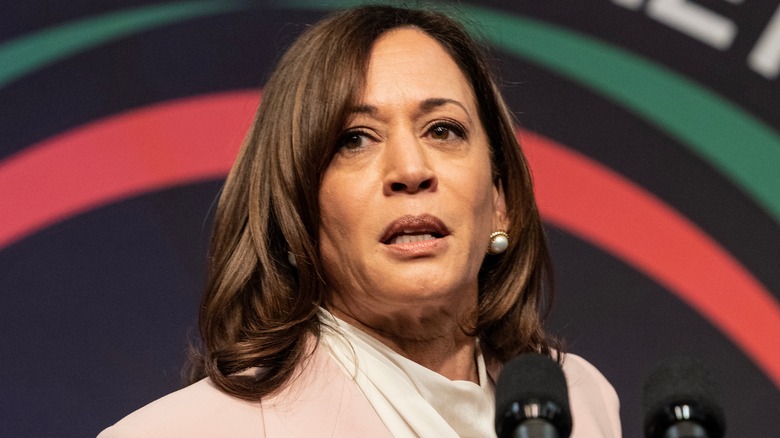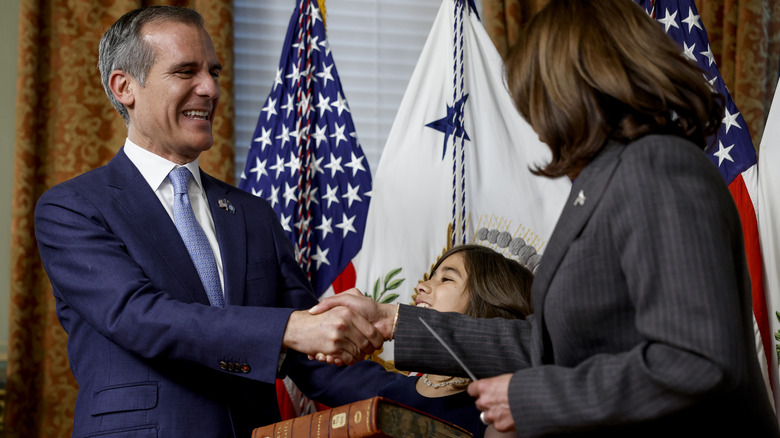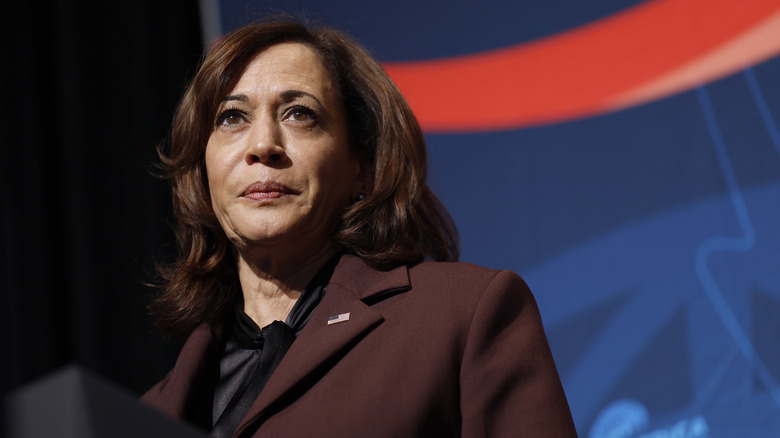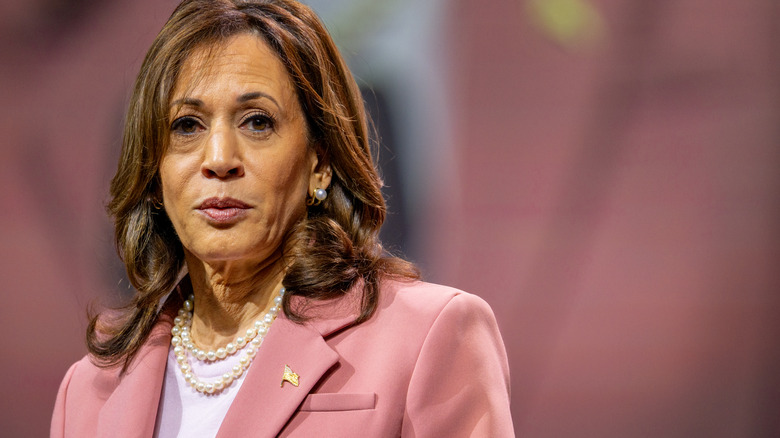On July 21, 2024, President Joe Biden dropped out of the election after heavy pressure from Democratic allies in the wake of his June 27 debate performance against former President Donald Trump. In a post on X, formerly Twitter, he shared a letter detailing his decision to quit the race. Shortly thereafter, he endorsed his Vice President, Kamala Harris, as his pick for the Democratic nominee.
“My very first decision as the party nominee in 2020 was to pick Kamala Harris as my Vice President,” Biden wrote. “And it’s been the best decision I’ve made. Today I want to offer my full support and endorsement for Kamala to be the nominee of our party this year.”
Harris, age 59, has had an historic career already. She formerly served as the District Attorney of San Francisco, Attorney General of California, and as a U.S. Senator. When chosen by Biden, she became the first woman, Black person and Asian American to serve in the role of VP, but that rise has not been without its challenges.
Kamala Harris has long been the target of racism
Being in politics is not easy. In a country as divided as the United States is now, identity politics — the tendency for people to judge others based on their ethnicities, religion, gender, etc. — can become volatile. Kamala Harris is no stranger to this phenomenon. As a woman of color in politics, she has faced much scrutiny from opponents throughout her career. Her immigrant parents, Donald Harris and Shyamala Gopalan were born in Jamaica and India, respectively. They met and fell in love in college at University of California, Berkeley.
Unfortunately, that very background has given way to Harris being targeted for being Black and Asian, as well as about her early career — especially after Biden selected her as his running mate in the 2020 election. According to data collected by The Washington Post, “… immediately following the running-mate announcement, false claims about Harris were being shared at least 3,000 times an hour on Twitter.”
Since Biden’s endorsement on July 21, there has been an escalation of racially-fueled attacks on Harris. Some have criticized her as a “DEI” or diversity quota hire. Tennessee Republican Congressman Tim Burchett said that “100 percent, she was a DEI hire,” adding, “when you go down that route, you get mediocrity.” Others have attempted to question the legitimacy of her citizenship — and by extension eligibility to be president —because her parents were immigrants. However, she is indeed a natural-born citizen.
Sexism has been another obstacle for Kamala Harris
After her parents married in 1963, Kamala Harris was born in 1964, and her sister Maya was born three years later. Unfortunately, Harris’ parents divorced early, and her mother became the primary caregiver. “My mother, who raised me and my sister, was a proud woman. She was a brown woman. She was a woman with a heavy accent,” Harris said on the campaign trail in 2020, NBC News reported. Though Harris attributes much of her strength to her mother, it hasn’t stopped detractors from discriminating against her for being a woman in politics.
Her dating history has become an object of scrutiny since Biden’s endorsement. In the ’90s, Harris had a romantic relationships with older politician Willie Brown — a piece of personal history that have caused some social media users to adopt offensive, sexuality-based slang when referring to her. The rumor is that Brown was married when he date Harris. However, the fact is that he and his wife were separated long before he engaged with Harris. Some Republicans have also taken issue with the fact that Harris has not birthed any children, though she is stepmother to her husband Doug Emhoff’s two children. They have been married since 2014.
Perhaps worst of all, according to Newsweek, her online detractors have begun sharing photoshopped or AI-generated images of Harris alongside suggestions that her career success is largely due to sleeping her way to the top.
Kamala Harris’ mother died from cancer
Kamala Harris’ mother was a civil rights activist and became a leading breast cancer researcher with a doctorate in nutrition and endocrinology from UC Berkeley. Despite her groundbreaking work in the fight against breast cancer, Gopalan was diagnosed with colon cancer. She lost her battle to the disease in 2009. Her influence on Harris — particular with regard to health care advocacy — cannot be understated.
“I miss her every day, I carry her with me wherever I go,” Harris wrote in a 2018 New York Times op-ed. “I think of the battles she fought, the values she taught me, her commitment to improve health care for us all. There is no title or honor on earth I’ll treasure more than to say I am Shyamala Gopalan Harris’s daughter. As I continue the battle for a better health care system, I do so in her name.”
Harris called the day she learned of her mother’s diagnosis one of the worst in her life.

